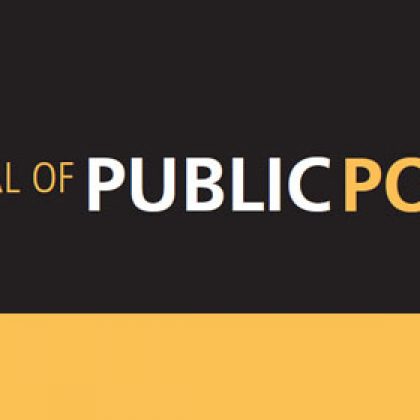Implementing New Norms for Research with Human Participants
**updated August 28, 2020**
Elections for judges in the US don’t usually attract much controversy or attention, but the 2014 race for seats on the Montana Supreme Court was an exception. The nonpartisan election generated heated debate thanks to a social science research project. Three political scientists designed an experiment that tested the effect of providing partisan political information directly to voters, mailing this information out to 100,000 registered voters in a state with under 700,000 registered voters. The information sent included Montana’s state seal — without permission. Many observers, including Montana election officials, were dismayed by the study, questioning the ethics of interfering in the democratic processes to further research. The study raised concerns among researchers also, both experimentalists and non-experimentalists, and highlighted the absence of common standards that could be used to assess the ethicality of research.
The discussions that followed this and other studies deepened debate about research ethics in political science and raised issues that matter for empirical researchers in political science no matter what method they use. Should qualitative researchers share with their readers the interview or observational material drawn from their engagement with human participants? When are authors obliged not to share detailed information from interviews or participant observation? What are the obligations of researchers when research participants risk being re-traumatized during research? Do ethical considerations for research participants extend beyond concern for human subjects, as defined by IRBs, to encompass concerns regarding research staff and partners? When must experimental researchers obtain consent prior to experimental “treatments”?
More broadly, on what criteria should researchers make decisions about how they engage with human participants?
Questions about researchers’ relationships with and obligations to research participants are at the center of these discussions. Our editorial team’s vision statement includes a commitment to research ethics. This blog post explains how we handle manuscripts that directly engage with human participants, setting aside our approach to other ethical issues such as conflict of interest and plagiarism.
The new Principles
The American Political Science Association Council recently adopted a new statement of ethical norms for such research, the Principles and Guidance for Human Subjects Research (April 2020), after a process of public consultation and revision in light of comments from various research communities, including experimentalists. The Principles lay out the ethical foundations for allresearch with human participants, drawing on long-standing principles of ethical research such as respect for persons. The Guidance for each Principle discusses its implications for different types of research.
The document promotes ethical reflection across the discipline. Despite its name, the document applies beyond research with “human subjects” to encompass all human participants in the research process, requiring consideration of any person whom the researcher directly engages in the research process or who could be affected by it. This includes expert witnesses, people exposed to experimental interventions, research assistants, and in some settings, the local community. One important implication is that getting IRB approval does not necessarily guarantee that research adheres to the Principles.
The new framework identifies three general and several specific principles to guide ethical research with human participants, paraphrased below.
- Researchers must respect the autonomy and consider the wellbeing of participants and other people affected by their research and be open about the ethical issues that arise in research and the decisions they take. (Principle 1)
- Researchers are responsible for the ethics of their research-related activities and cannot delegate that responsibility to review boards or other entities. (2)
- Deviations from the standards of conduct and reflexive openness described in the Principles may in some cases be justified. They must be acknowledged as such and justified in scholarly presentations and publications. (3)
The Principles further advise that scholars should:
- disclose from whom and why they sought consent (5);
- disclose and explain any use of deception (6);
- respect assurances of confidentiality or anonymity (9);
- if sharing research materials is deemed to be unethical, justify that decision (9);
- report likely impacts on participants and on broader political processes (10);
- be aware of relevant laws and regulations and acknowledge whether they complied (11);
and
- explain and justify any deviations from any Principles (3).
Principle 12 calls for journal editors to “incorporate ethical commitments into their mission, bylaws, instruction, practices, and procedures” (APSA 2020: 20). As editors implementing this framework, we promote these norms by urging our authors to reflect on their research practices in light of the Principles.
How does this affect the submission process?
We’ve tried to make adjusting to all of this as easy as possible given that new challenges are the last thing anyone wants right now. Our submission guidelines, FAQs and submission interface guide authors who are submitting manuscripts based on research with human participants. We prompt authors either to affirm that their research adheres to the Principles, or if they claim an exception from the Principles for that research, to provide a reasoned justification explaining the deviation. We require authors to do this for two reasons. First, going through this process promotes research ethics (principle 12) and informs our reading of the manuscript. Second, we ask reviewers to assess research ethics in their reports so that we can draw on the wisdom and experience of research communities.
Many manuscripts draw on research conducted months or years ago, before the Principles were approved. Because the Principles draw on long-standing principles of research ethics and because we are committed to the promotion of research ethics, we nonetheless require authors of all manuscripts that we review and publish to discuss the ethical choices they made in the text or appendix. In particular, authors must acknowledge deviations from the Principles and provide a brief reasoned justification for them in light of the Principles in the main text (and if needed, in an appendix).
How has this affected the review process?
We flag new manuscripts that do not sufficiently discuss research ethics, sending them back for clarification before being considered for review, as we do with improperly blinded submissions or those that exceed our word limits. We have sent manuscripts back for various reasons, usually because they did not reflect enough on the ethics of the research process. Some submissions did not discuss ethics though they drew on research with human participants. Some drew on surveys or interviews with expert witnesses yet nonetheless affirmed that the research did not include human participants. Other manuscripts did not confirm that the research had been approved (or ruled exempt) by an ethics board, leading us to ask whether the lack of confirmation was an oversight, or, if not, to explain why the research was not reviewed. We have also sent back manuscripts because they did not discuss whether and how the researchers obtained informed consent from participants, and a few because they did not discuss the potential impact of their research on the political processes in which they intervened. Other cases involved deceiving participants but did not include any justification for doing so. We also promote consideration of other ethical norms; for instance, we have asked authors whose analysis draws on research performed as paid labor on MTurk and similar platforms to discuss compensation rates. Between June 1 and July 31, we sent back approximately three dozen manuscripts (about 10% of the submissions received in our first 2 months) for clarification of research procedures. Happily, almost all of our authors provided the needed clarifications quickly (within a day or two in most cases).
Six members of our Editorial Board—Catherine Boone, Scott Desposato, Macartan Humphreys, Lauren Maclean, Layna Mosley, and Peri Schwartz-Shea—serve as our Advisory Board for Research Ethics. We consult with them regularly as we encounter new or troubling issues. We are also grateful for the ongoing advice from Trisha Phillips, co-chair (with Scott Desposato) of the Ad Hoc Committee on Human Subjects Research that developed the Principles.
We recognize that these changes will require some extra care for our authors and reviewers, but it is an important step forward for the discipline. Several editors of other journals, along with Scott Desposato and Trisha Phillips, will join us for an APSA roundtable to discuss these issues, Research Ethics in Political Science: The Role of Journal Editors (September 10, 8:00 to 9:30am MDT = 10:00 to 11:30am EDT).
We hope to “see” you there!
– The Editors of the American Political Science Review.






